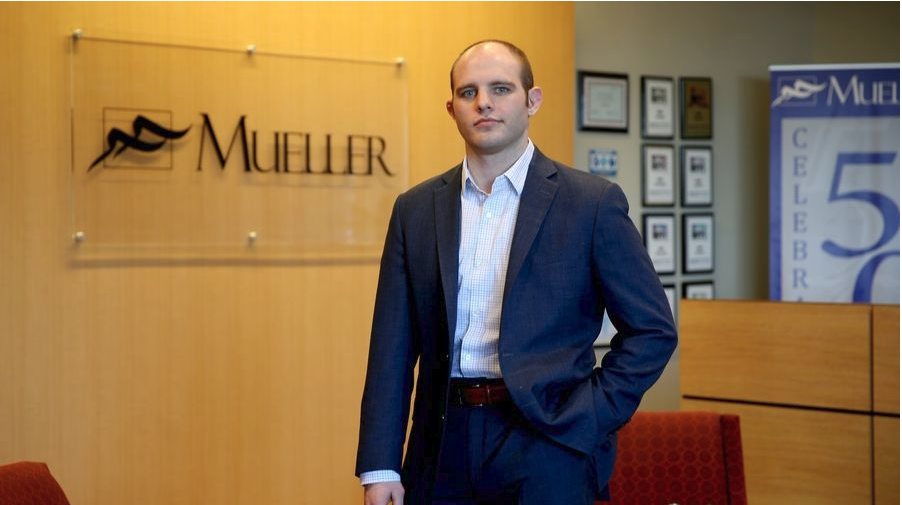
Taylor Schuck was a 24-year-old accountant who persuaded his company in 2016 to get involved in the cannabis industry.
Now he’s a 27-year-old accountant who works with roughly 40 cannabis-related clients in five states and has shown his bosses at Mueller, a certified public accountancy firm in Elgin and Chicago, that the need for services soon could grow even further.
With legalizing recreational cannabis use for Illinois adults is on the to-do list of Gov. J.B. Pritzker, the day could come when more people will be able to access the substance and more businesses will line up to grow, process, package, distribute and sell it.
Although the idea is not supported by suburban doctors, school leaders and police, who worry about cannabis-related overdoses, crashes and misuse by teens, many industry advocates and skeptics alike predict it eventually will be approved.
If or when that happens, Schuck said, Mueller will be ready with a track record of helping companies deal with what’s similar about their endeavors — structuring, accounting, valuations — as well as what’s different, such as complying with cannabis-specific taxes, finding banking services and filing income tax returns.
“This is my area of what I really care about. By extension, this is something that Mueller as a firm cares about,” Schuck said. “As the industry in Illinois expands, I assume our offering to these clients will also expand.”
Schuck said he saw opportunity in cannabis-related accounting during his college days in Michigan, when cannabis allowed him to avoid opioid use after hip surgery for a wrestling injury in 2014.
Once he graduated and joined Mueller the next year, the Kane County native went to work educating the company about the benefits and risks of helping companies involved with cannabis.
“I could not find one time where a CPA was in legal or regulatory trouble from simply providing services within the same realm of services we would provide to any other business,” Schuck said.
So he got the go-ahead to dive in and build a client base.
The work is interesting, he said, because cannabis is an illegal Schedule I drug, according to the U.S. Drug Enforcement Agency. Schedule I is reserved for substances with the highest potential for abuse and “no currently accepted medical use,” such as heroin, ecstasy or LSD.
Internal Revenue Service code prohibits any business dealing with a Schedule I substance from deducting “ordinary and necessary” business expenses from income tax returns; all that can be deducted is the cost of goods sold, Schuck said.
That means even if a new business broke even or operated at a loss during its first year, the proprietors still could owe taxes personally.
“That’s a big concern,” he said.
Financial concerns don’t stop at taxation; they extend to everyday transactions, too. That’s because of the banking regulations for institutions that accept funds from the sale of cannabis.
“A lot of banks will tell you they’re simply not allowed to do such a thing, and that is actually not true,” Schuck said. “They are allowed, but there are requirements.”
Pretty detailed ones, too.
Banks that take on cannabis-industry clients have to file reports on every transaction those clients conduct, and the businesses themselves must file a form for any cash transaction more than $10,000.
Industry advocates hope such taxation and banking policies can be changed to apply to cannabis-related businesses like any other.
“We’re working on making it easier for banks to work with the cannabis industry and reforming the tax code so they are taxed fairly,” said Morgan Fox, spokesman for the National Cannabis Industry Association. “Not being able to deduct business expenses creates a tremendous tax burden on cannabis businesses.”
Banks willing to work with such businesses often keep it under wraps to avoid saddling themselves with too many time-intensive clients, Schuck said.
That’s especially true for those outside recreational cannabis hotbeds such as Washington state, where a small “green banking services” industry exists. Two thousand miles east, suburban Illinois banks’ reluctance to get involved brings a challenge when one of Schuck’s clients needs a bank, and he makes it his job to find one.
Schuck said he hunts for help by seeking a contact in a bank’s compliance department and trying to persuade him or her with the promise of opportunities presented by cannabis clients.
It’s much the same approach he used to win over the leaders at Mueller: research, educate, earn a chance, take it.
In his daily work with clients such as cultivators and dispensaries, Schuck also warns employees of potential implications for their personal finances.
Banks could decide to reject customers who deposit paychecks from the cannabis industry, and so could car loan providers.
“I have heard of that happening before, especially when there are conspicuous names. If it’s a general name it often doesn’t happen,” Schuck said.
Cash payments aren’t necessarily better. “If you’re paying employees in cash every time and the employees are going to the bank every week to deposit cash, it could cause problems.”
It’s a lot to keep up with, and some of it could change as Illinois legislators work on a recreational-use bill, which is why Schuck expects the need for the services he’s begun to provide will grow.
“The licensing and the ever-shifting regulatory environment is definitely a lot for most entrepreneurs to handle,” he said.
For more information, contact Taylor Schuck | 847-649-8814 | tschuck@muellercpa.com



